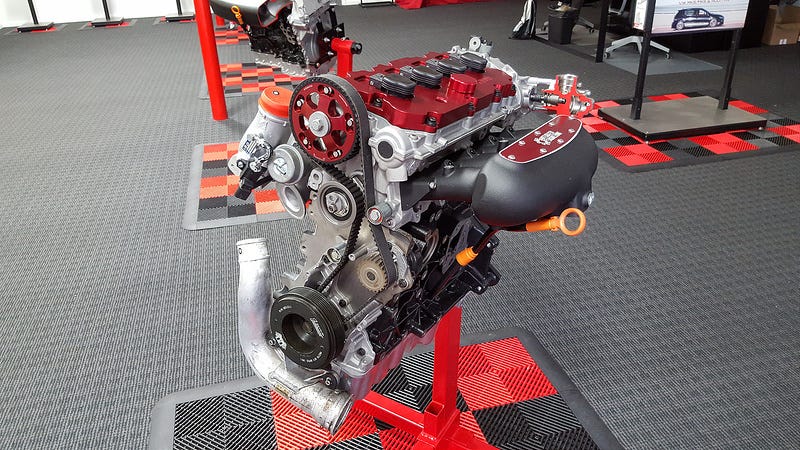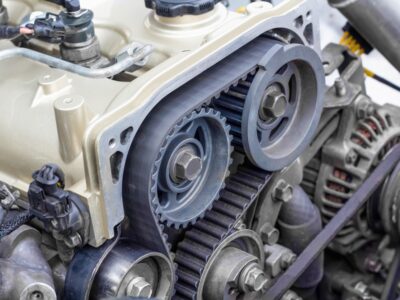
Audi A1 Engine Size: The Complete Guide to Every Power Option

When we talk about the Audi A1, we’re really talking about a small car with a surprisingly big personality. And at the heart of that personality sits one central question: what engine size does the Audi A1 actually offer? Today, we’re unpacking every engine, every generation, every performance nuance, and every real-world detail that shapes the A1 driving experience.
We’re diving deep — casually, conversationally, and with the kind of clarity that turns technical information into something that actually makes sense. So grab a seat, take a breath, and let’s explore the fascinating world of Audi A1 engine sizes together.
- Understanding the Audi A1 Line-Up
- Why Engine Size Still Matters Today
- Audi A1 Generations at a Glance
- Breaking Down Each Audi A1 Engine Size
- 1.0 TFSI – The Featherweight Fighter
- 1.2 TFSI – The Early Underdog
- 1.4 TFSI – The A1’s Sweet Spot
- 1.5 TFSI – The New-Age Performer
- 1.6 TDI – The Long-Distance Saver
- 2.0 TFSI – The Legendary Audi S1 Engine
- Audi A1 Engine Size Comparison Table
- How Engine Size Affects Ownership Costs
- Turbocharging: The Secret Ingredient
- Which Audi A1 Engine Size Is Best?
- Real-World Fuel Efficiency by Engine Size
- Reliability: Do Some Engine Sizes Hold Up Better?
- Choosing the Right Engine for Your Lifestyle
- Engine Size and Resale Value
- Is the Audi A1 Underpowered with Smaller Engines?
- Our Final Take on Audi A1 Engine Sizes
- Conclusion
- FAQs
Understanding the Audi A1 Line-Up
Audi designed the A1 to appeal to drivers who want premium quality without the baggage of oversized engines or fuel-draining powertrains. Over its two generations, the A1 has embraced turbocharged small-displacement engines that pack a punch while staying efficient.
The lineup includes:
- 1.0 TFSI (various power outputs)
- 1.2 TFSI
- 1.4 TFSI (including 140 hp and 150 hp variants)
- 1.5 TFSI (later-gen models)
- 1.6 TDI diesel
- 2.0 TFSI (S1 performance model)
Each engine size brings its own character — like siblings with distinctly different personalities but sharing the same premium DNA.
Why Engine Size Still Matters Today
In an era where everything is moving toward electrification and downsizing, does engine size still shape the driving experience? Absolutely.
Engine size affects:
- Acceleration and torque
- Fuel efficiency
- Insurance group rating
- Long-term reliability
- Maintenance costs
- Driving feel — that intangible “oomph” when you press the pedal
In the case of the Audi A1, the magic lies in how well small engines punch above their weight.
Audi A1 Generations at a Glance
First Generation (2010–2018): Compact Power Done Right
The first-gen A1 arrived with a clever mix of small petrols and diesels tuned for city life but capable of surprising motorway performance.
Second Generation (2018–Present): More Power, More Tech
The second-gen A1 matured. Engines became stronger, smoother, and more efficient. The smallest engines got punchier, and mid-range options stepped up significantly.
Breaking Down Each Audi A1 Engine Size
Below, we explore engine sizes by displacement, typical power output, drivability, strengths, and quirks.
1.0 TFSI – The Featherweight Fighter
Overview
The 1.0-litre 3-cylinder TFSI is the A1’s staple engine in newer models. Don’t let its tiny size fool you — this thing has energy like a toddler who just discovered sugar.
Typical Power Outputs
- 95 hp
- 110 hp
Driving Experience
This engine feels eager, responsive, and delightfully efficient. Around town, it runs like a dream, and on motorways, it holds its own surprisingly well.
Best For
- Urban driving
- Newer drivers
- Budget-friendly running costs
1.2 TFSI – The Early Underdog
Overview
Found in early first-gen models, the 1.2 TFSI was Audi’s gateway engine. It was mild, simple, and reliable when serviced correctly.
Typical Power Output
- 86 hp
Driving Experience
It’s not a powerhouse, but it's perfect for calm commuters. Think of it as the friend who never shouts but always shows up on time.
You may be interested in reading Audi A1 Dashboard Warning Lights & Symbols Guide (2010–2024)
Audi A1 Dashboard Warning Lights & Symbols Guide (2010–2024)1.4 TFSI – The A1’s Sweet Spot
Overview
The 1.4 TFSI is arguably the most balanced A1 engine ever offered. Strong enough for lively acceleration and still fuel-efficient.
Power Variants
- 122 hp
- 125 hp
- 140 hp (cylinder-on-demand)
- 150 hp (later models)
Driving Experience
Smooth, confident, and flexible — like wearing comfortable trainers that somehow look expensive.
1.5 TFSI – The New-Age Performer
Overview
Modern A1 variants introduced the popular 1.5 TFSI, known for its refinement and just-right blend of efficiency and power.
Power Output
- 150 hp
Driving Experience
It’s clean, quick, and sophisticated. Audi’s cylinder-on-demand tech helps keep fuel bills low without sacrificing enthusiasm behind the wheel.
1.6 TDI – The Long-Distance Saver
Overview
The 1.6 TDI diesel was designed for drivers clocking heavy motorway mileage.
Power Output
- 90 hp
- 105 hp
- 116 hp
Driving Experience
Quiet and economical once warmed up. Think of it as the trustworthy marathon runner: slow to start, unstoppable once in rhythm.
2.0 TFSI – The Legendary Audi S1 Engine
Overview
This is the myth, the icon, the beast: the 2.0 TFSI that powers the Audi S1.
Power Output
- 231 hp
Driving Experience
This thing turns the A1 into a pocket rocket. All-wheel drive, explosive power, and a soundtrack that means business.
Audi A1 Engine Size Comparison Table
| Engine Size | Cylinders | Fuel | Power Range | Best For |
|---|---|---|---|---|
| 1.0 TFSI | 3 | Petrol | 95–110 hp | City drivers |
| 1.2 TFSI | 4 | Petrol | 86 hp | Budget owners |
| 1.4 TFSI | 4 | Petrol | 122–150 hp | Balanced performance |
| 1.5 TFSI | 4 | Petrol | 150 hp | Modern drivers |
| 1.6 TDI | 4 | Diesel | 90–116 hp | High mileage |
| 2.0 TFSI | 4 | Petrol | 231 hp | Performance lovers |
How Engine Size Affects Ownership Costs
Smaller engines often mean:
- Lower fuel bills
- Cheaper insurance
- Reduced maintenance complexity
- Better resale value in some markets
Larger engines — especially the 2.0 TFSI — reward with excitement but demand more wallet flexibility.
Turbocharging: The Secret Ingredient
Every petrol A1 engine worth driving has one thing in common: a turbocharger. Turbos help small engines perform like larger ones without burning fuel like it’s going out of fashion.
It’s automotive alchemy: big-engine feel, small-engine bills.
Which Audi A1 Engine Size Is Best?
Let’s break it down:
Best for Beginners
- 1.0 TFSI (95 hp)
Best for All-Round Driving
- 1.4 TFSI (125–140 hp)
Best for Enthusiasts
- 2.0 TFSI in the Audi S1
Best for High-Mileage Commuters
- 1.6 TDI
Best Value on the Used Market
- 1.4 TFSI 122–125 hp
Real-World Fuel Efficiency by Engine Size
Drivers typically report:
1.0 TFSI
- 50–55 mpg (UK)
1.4 TFSI
- 42–48 mpg (UK)
1.6 TDI
- 65–72 mpg (UK)
2.0 TFSI
- 33–36 mpg (UK)
Efficiency isn’t just about size — it’s about tuning, load, driving style, and even tyre choice.
You may be interested in reading Audi A1 Dashboard Warning Lights & Symbols Guide (2010–2024)
Audi A1 Dashboard Warning Lights & Symbols Guide (2010–2024) Best Audi A1 & S1 Oil Types, Grades, Capacities, and Service Intervals (Complete Expert Guide)
Best Audi A1 & S1 Oil Types, Grades, Capacities, and Service Intervals (Complete Expert Guide)Reliability: Do Some Engine Sizes Hold Up Better?
Common Strengths Across the Range
- Solid build quality
- Efficient turbo engines
- Good heat management
Engines Known for Exceptional Longevity
- 1.4 TFSI (post-2013 revisions)
- 1.6 TDI (properly maintained)
Engines Requiring Extra Attention
- Early 1.2 TFSI coil packs and timing concerns
- 1.4 TFSI 150 hp (occasionally sensitive to low-quality fuel)
Choosing the Right Engine for Your Lifestyle
Consider:
- How far you drive weekly
- Motorway vs city mix
- Your desire for performance
- Insurance budget
- Maintenance comfort level
- Resale priority
Choosing an engine is like choosing shoes. You want the pair that fits your life — not just the one that looked cool online.
Engine Size and Resale Value
If resale value matters, the 1.0 TFSI and 1.4 TFSI tend to hold steady thanks to their widespread popularity and strong reliability record.
The S1 2.0 TFSI is in its own league — rare, cult-favourite, and incredibly desirable.
Is the Audi A1 Underpowered with Smaller Engines?
Surprisingly, no.
Modern turbocharging means even the 1.0-litre option has enough torque to feel lively. It’s not about the size alone — it’s about the engineering behind it.
Our Final Take on Audi A1 Engine Sizes
The Audi A1 proves that engine size doesn’t limit excellence. Whether you want a zippy city car, a well-rounded commuter, or a small car with giant-slayer performance, the A1’s engine lineup offers something for everyone.
Big personalities sometimes come in small engine bays.
Conclusion
Engine size defines more than just numbers on paper — it shapes the A1’s identity. And when you match the right engine to your driving style, the A1 becomes more than a car; it becomes a companion that moves like you do.
Whether you’re eyeing a sprightly 1.0 TFSI or lusting after the rebellious 2.0 TFSI S1, the key is understanding what each engine brings to your world.
Choose wisely, drive boldly, and enjoy the engineering mastery tucked under that compact bonnet.
FAQs
1. What is the smallest engine size in the Audi A1?
The smallest is the 1.0-litre TFSI, offered with 95 or 110 hp depending on the model year.
2. What is the most powerful Audi A1 engine?
The 2.0 TFSI in the Audi S1 delivers a mighty 231 hp, making it the top performer.
3. Is the 1.0 TFSI engine good for motorway driving?
Yes — surprisingly so. It’s capable at 70 mph, thanks to its turbocharged torque.
4. Which Audi A1 engine is best for fuel economy?
The 1.6 TDI is the fuel-efficiency champion, reaching over 65 mpg (UK) in real-world use.
You may be interested in reading Audi A1 Dashboard Warning Lights & Symbols Guide (2010–2024)
Audi A1 Dashboard Warning Lights & Symbols Guide (2010–2024) Best Audi A1 & S1 Oil Types, Grades, Capacities, and Service Intervals (Complete Expert Guide)
Best Audi A1 & S1 Oil Types, Grades, Capacities, and Service Intervals (Complete Expert Guide) How to Reset TPMS on Audi A1: Complete Step-by-Step Guide for All Models
How to Reset TPMS on Audi A1: Complete Step-by-Step Guide for All Models5. Are Audi A1 engines reliable long-term?
Yes. With proper servicing, engines like the 1.4 TFSI and 1.6 TDI often surpass 120,000 miles comfortably.
If you want to know other articles similar to Audi A1 Engine Size: The Complete Guide to Every Power Option you can visit the category Service and Parts.
Leave a Reply





More content of your interest